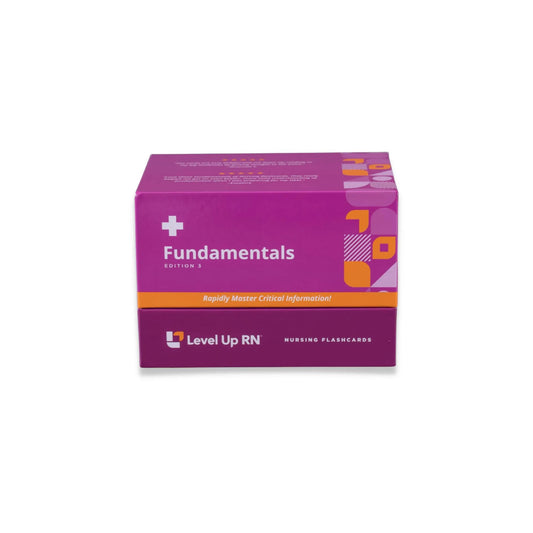Hi, I'm Ellis, and in this video, I'll be discussing the physiological changes in the older adult as it relates to eye health and vision and as it relates to hearing, balance, and other sensory changes. So these cards can be found in the gerontology section of our fundamentals deck, so if you have the fundamentals deck, go ahead and grab it. You can follow along with me. There are a lot of changes to eye health and vision as one ages. The older adult is more likely to experience presbyopia, and that's just a fancy way to say that it's more difficult for them to focus on objects that are closer, right? So the older you get, the more likely you are to need reading glasses because it's just harder to focus on things that are in a closer proximity. The peripheral vision can also change and decrease and just general visual field decreases. There could also be an issue in seeing with glares and seeing in darkness, and that's going to impact the ability to drive at night safely and comfortably. The eye itself can become dry, which sometimes doesn't bother people, but it can also sometimes cause stinging or discomfort. So if that happens, then they may need something like an eye drop or an eye ointment to help alleviate that discomfort. The lens may yellow, which may not be considered a medical concern, but it actually does change the perception of color. So they will perceive color differently if that occurs. Other issues that can happen with the eye is that the older adult has an increased risk for cataracts, which is affecting the opacity of the lens. They are at an increased risk for glaucoma, which increases the fluid pressure inside the eye itself. And they're at an increased risk for macular degeneration, which is a loss of the central vision.
Hearing and ear health can change as one ages in that the older adult is more likely to experience presbycusis, which is bilateral hearing loss that is usually attributed to age. And this often begins with the loss of higher-pitched frequencies, so they are more likely to be able to hear lower tones for much longer. The presence of tinnitus or tinnitus. I think those are pronounced differently based on where you live, but tinnitus is a sensation of ringing or buzzing in your ears that is, of course, not contributed to an outside source. It just happens. There is an increase in cerumen or earwax. There's just more of it in their ears, and it can lead to impaction, which can be confusing because some people might be experiencing cerumen impaction and think that they're having issues with hearing, but there's actually nothing wrong with their hearing. They just need to get their earwax removed. And finally, ear health can change in that an older adult may experience an alteration in their equilibrium, which of course, is going to impact their ability to balance well, and they may have difficulty maintaining that balance.
Other sensory changes that occur with age include a decrease in taste buds, saliva, and a sense of smell, and those can contribute to that decreased loss in appetite. Older adults might experience a decrease in sense of touch and pain reception, which increases their risk for injury, things like burns or pressure injuries. For example, if they are utilizing a heating pad, they might not know that it's causing a burn because they can't always sense that that burn is occurring. The older adult also has just a natural decrease in body temperature. So their average temperature usually is around 97.7 degrees Fahrenheit, so just slightly lower than a younger adult perhaps. And they have a decreased ability to respond to temperature extremes, which means that they're more likely to experience hyperthermia, hypothermia, heat stroke, heat exhaustion, right? Their body is just a little bit less capable of managing those temperature responses and changes. What term is used to describe the difficulty in focusing on objects that are close to you? Presbyopia. Describe presbycusis. Presbycusis is bilateral age-relating hearing loss, and people who experience this are more likely to lose the ability to hear higher-pitched frequencies first. What sensory change puts the older adult at a higher risk for experiencing burns, especially during something like using a heating pad? There is a decrease in the ability to sense touch and to sense pain.



1 comment
very good